What it was like to grow up next to Auschwitz: ‘You try somehow to pretend it didn’t happen’
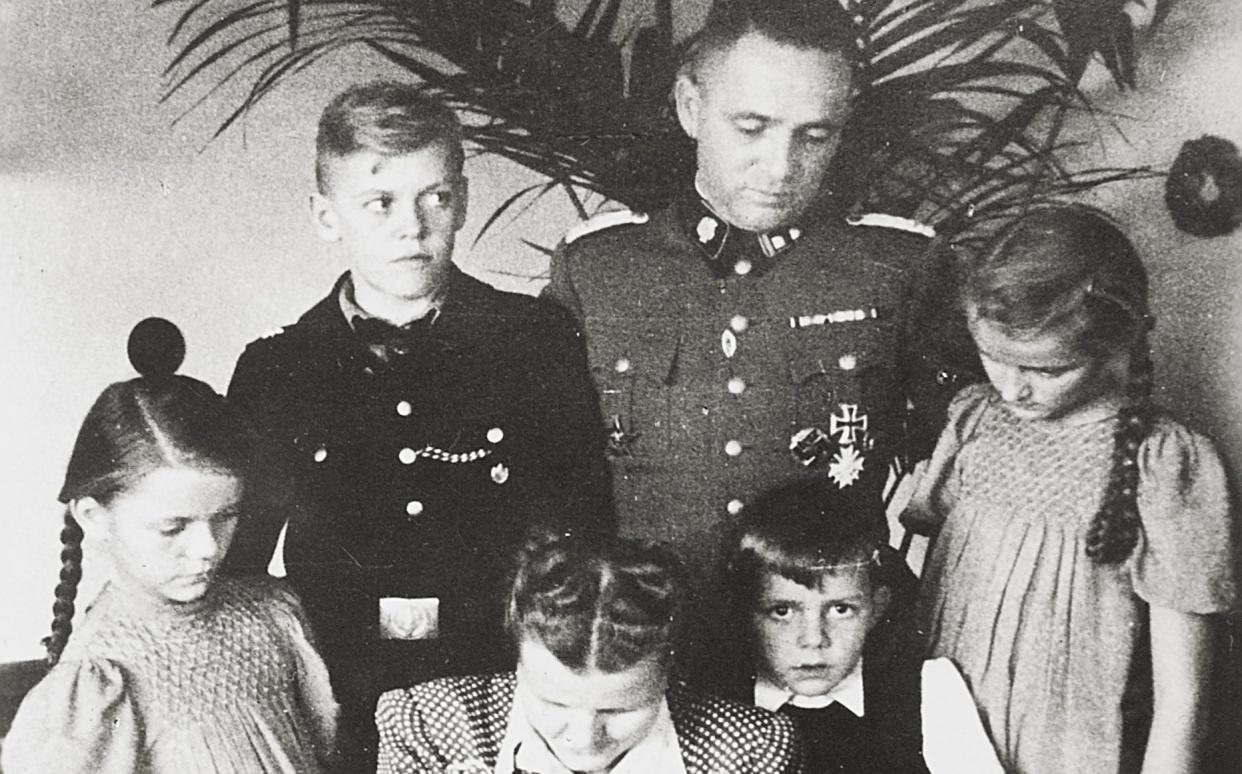
“I had a really lovely and idyllic childhood in Auschwitz.”
So says an old man near the start of a new documentary, and it stops you in your tracks: not just the words themselves, but the blithely insouciant, almost guileless, tone in which he says them.
The old man is Hans Jürgen Höss, now 87, and the documentary is The Commandant’s Shadow. The commandant in question is Hans Jürgen’s father Rudolf, who was in charge of Auschwitz for all but a few months of its grisly existence, and his shadow is long indeed, encompassing in this film not just Hans Jürgen and his own son Kai, but also camp survivor Anita Lasker-Wallfisch and her daughter Maya.
Auschwitz continues to exert its own gravitational pull on our culture in non-fiction and fiction alike, but The Commandant’s Shadow is different in two respects. It concentrates as much on the perpetrators as the victims, and it looks not just at those directly affected but also at their descendants, a second generation whose questions have often foundered on the granite walls of their parents’ silence.
“My dad and I never talked about it at home,” Kai, a Stuttgart pastor, says in the film. “It was never denied, but we just kept it quiet. But still it has very negative effects. And that’s what happens when terrible things are not talked about and you don’t work through these things, and you just somehow try to pretend it didn’t happen.”
It’s inevitable that The Commandant’s Shadow will be seen as a companion piece to The Zone of Interest, Jonathan Glazer’s Oscar-winning drama centred on the Höss family’s life at Auschwitz. The genius of Glazer’s picture is that it is two films in one. There’s the film we see, where the family’s life seems as idyllic as Hans Jürgen remembers, and the film we hear, an almost constant soundscape of ambient genocide right next door. It’s cognitive dissonance at its most extreme, and is of course mirrored in the way Hans Jürgen chose to live the vast majority of his long life before agreeing to appear in The Commandant’s Shadow.
Daniela Volker, the documentary’s director, who has also made films about the aftermath of the Rwandan genocide and exorcism in the Church of England, tells me that the Hans Jürgen she first met was “a man who had spent his entire life avoiding dealing with who his father had been”. Even though Auschwitz literally backed onto the garden where he and his four siblings played without a care in the world, he claimed never to have seen the smoke or smelt the burning from the camp’s crematoria, things of which people who lived many miles away were aware.
“I spent five days with him at the start of filming,” Daniela says, “and the cameraman said to me after day one, ‘You’re wasting your time here. He hasn’t seen anything, he can’t remember anything, let’s go home.’”
But Daniela felt it was worth persisting. “After the five days were up I gave him his father’s autobiography” – a book which Hans Jürgen had always had but never read – “and you could see after a few pages a lifetime of denial came crashing down. At that point he could have closed the book and told me to get lost, but he didn’t.”
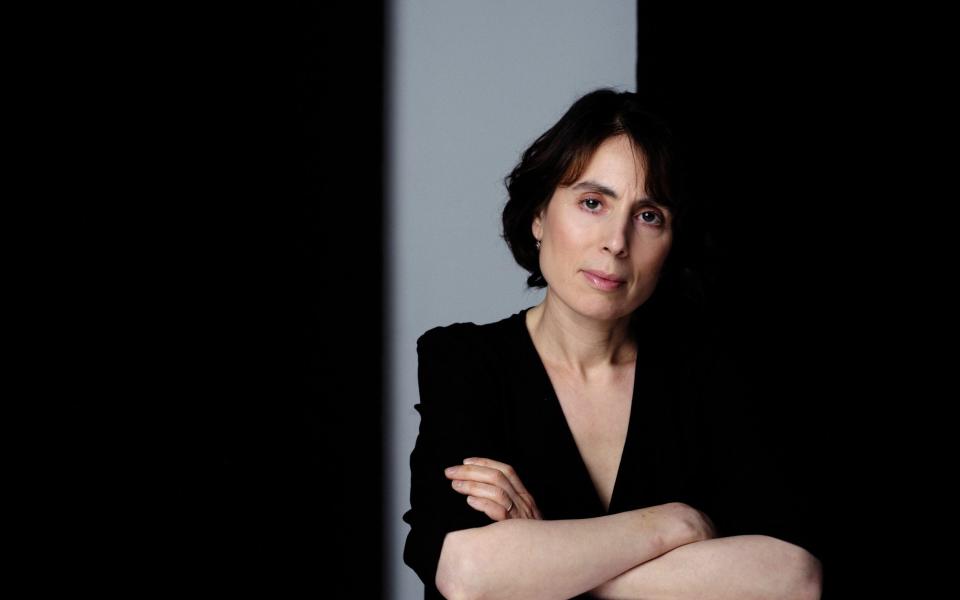
Hans Jürgen’s gradual acceptance of the truth is the heart of the film. When we next see him, he says of the book: “I wish I hadn’t read it. It’s horrendous.” But he also accepts its truth, and his desire to learn, reluctant and halting though it is, stands in stark contrast to the attitude of his sister Brigitte, whom he visits in Virginia. Brigitte, a former Balenciaga model in Spain whom Francisco Franco would call “my little German soldier,” is shown to be unrepentant about what their father did. “I will never be angry with my dad. He must have been a very strong person to live like this and do what he had to do. Look at all the people they say died in the camps: but all the survivors, why didn’t they die? They’re still living and they get money now from Germany, from the Jewish people.”
Her only concession to the horrific reality is a solipsistic wondering whether the cancer that has since killed her was divine vengeance for Rudolf’s role in the Holocaust. And it is revealing that when she first opens her door to Hans Jürgen, the brother she has not seen in more than half a century, she instantly recognises the plastic crown on his head as referring to a childhood game.
“They became so regressive when they met,” Daniela says. “They literally went back to 1943. Maybe Auschwitz was just the place they were happiest in. After the war people like them were just told zip it, look forward, build for the future and forget about the Third Reich. If everyone had been going round soul searching… Well, there were so many skeletons in everyone’s closet. Very few people actually got tried and punished. That was how people had to be for the nation to move on, but that may not have been very good for individuals.”
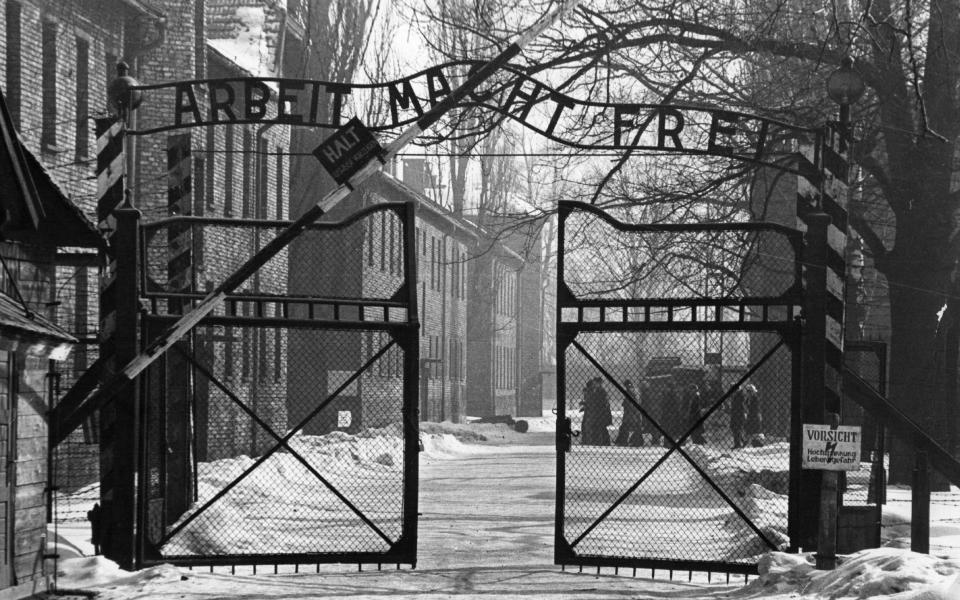
A similar sense of denial exists on the victims’ side of the fence between Anita and Maya. Anita’s skill as a cellist saved her from the gas chambers: she became part of the camp orchestra, and after the war forged a successful career as a classical musician in England. Direct and vital, she turns 99 next month and still smokes a pack of cigarettes a day. But her survival came at a price. “I’m the wrong mother for my daughter,” she suggests in the documentary. “I’m very basic. Traumatised? Forget it. Get on with life.”
This emotional hardening left Maya feeling unseen at a deep level: looking at what seem entirely normal pictures of herself as a toddler, she calls herself “misshapen”. “Those born to Holocaust survivors, as I am, can inherit traumatisation that sits inside the psyche and has no shape, no form, no words, because it hasn’t been given a context,” she confesses on screen. Maya’s search for understanding has come through both geography and profession. She has moved to Germany because “my bones belong there,” adding that she’s “trying to reclaim stolen lives and my unlived life”.
She is also a psychotherapist who deals with intergenerational trauma. “I realised there was no space for my suffering, because how can you compare? You can’t. I was brought up with messages like, ‘You are not going to the gas chamber, you’re not starving, you’re hungry? What are you talking about? You’ve had a piece of bread. What’s your problem?” When Maya asks her mother, “do you think there are any similarities between us?” Anita replies: “I would have to look a long way.”
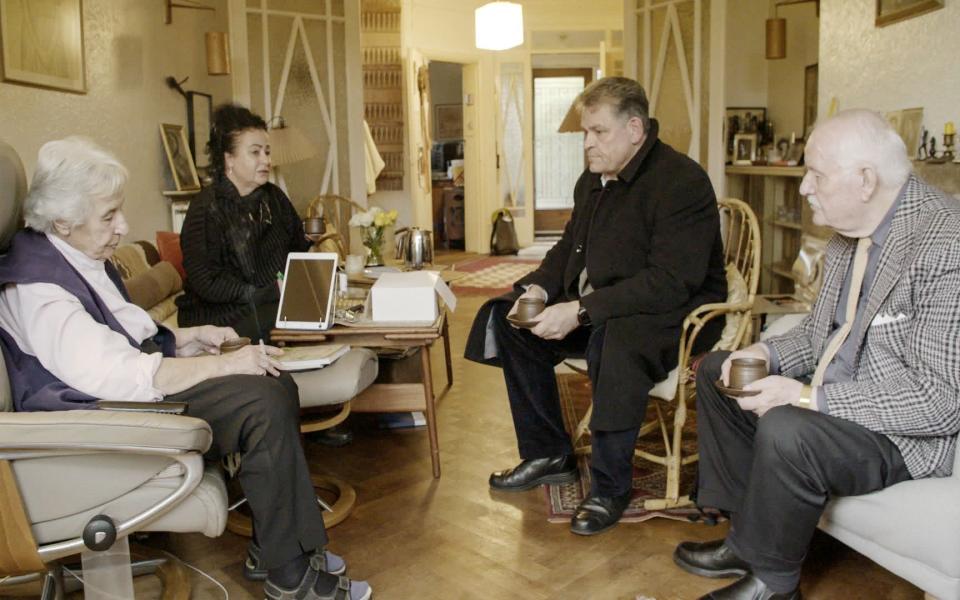
But, in a reflection of the symbiotic link between the two sides, Maya’s work deals not just with descendants of victims but of perpetrators too. “The self-punishment among descendants of perpetrators is so profound that it’s almost impossible to find peace.”
This psychological rupture brings to mind the words of the polymath Jacob Bronowski. “The most awful thing about Auschwitz was that the people who’d been killed in the gas ovens, they were just dead. They were the fortunate ones. But the people who shoved another lot of people into the gas ovens the next day, they were like characters out of Dante’s Inferno, living an endless hell because they had lost all sense of human feeling and were going to repeat tomorrow the unutterable bestiality they had practised today.”
In some ways, of course, both the Höss and Lasker-Wallfisch stories are tribal or national ones played out at individual levels. “That’s the Jewish fate,” Anita says. “You don’t belong anywhere, and where you do belong you’ve got the biggest problem. We were a normal family. We became abnormal with the advent of Hitler.”
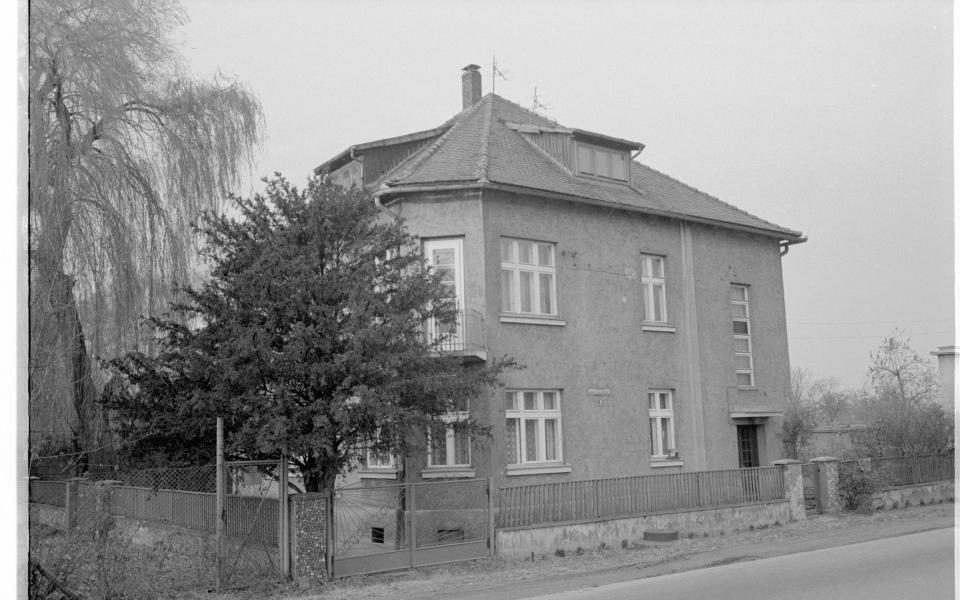
Hitler’s concept of lebensraum, living space for the German people, was a major driver of his expansionist policies. But on smaller scales living spaces are both a human need and a major part of this documentary: the plot of the Höss family paradise, Maya’s relocation to the land of her ancestors, and the literal living room in which Anita welcomes Hans Jürgen and Kai at the end of the narrative, where they arrive bearing a Breslau baked casserole kugel as a gift.
She is the first Jewish inmate of Auschwitz Hans Jürgen has ever met. “He had a cook who was a Jehovah’s Witness,” Daniela says, “a nanny who was a political prisoner, and a Polish gardener. But the Hösses would not have Jewish inmates in their house.”
It’s not an easy meeting, and Anita pulls no punches. When Hans Jürgen says he doesn’t hate Rudolf “but he wasn’t a nice father”, she sardonically replies “you’re neutral now.” Nor is she having any of Kai’s emollient take that the Jews are God’s chosen people. “To quote a Jewish prayer,” she says, “God, why don’t you choose someone else? What have we done?”
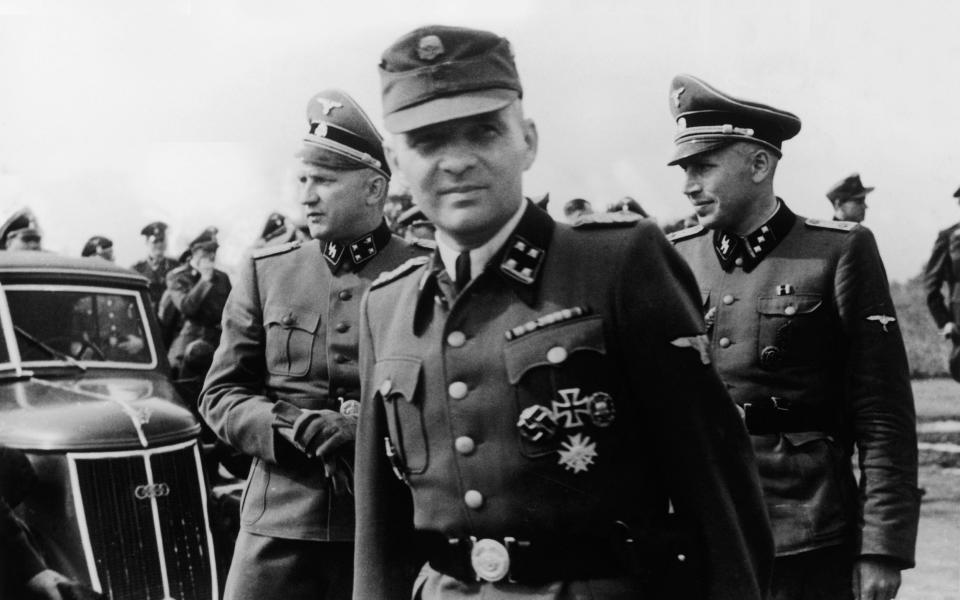
But she appreciates Hans Jürgen’s courage in agreeing to the meeting, and they all see the need for dialogue. “It could happen again,” Anita tells them, “because we humans behave atrociously badly.”
Daniela points to the topic’s essential universality. “We showed it in Mumbai, where people hadn’t necessarily learned about the Holocaust in school, and many came up afterwards to share their family’s experiences of Partition. It worked in a totally different cultural framework, because they’re human stories.”
But even – especially – for someone who has suffered as much as Anita, there is always hope. “The important thing,” she concludes, “is that we talk to each other and understand each other.”
The Commandant’s Shadow is in cinemas from July 12

